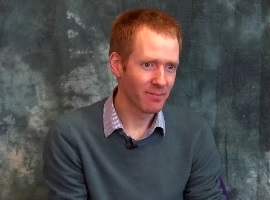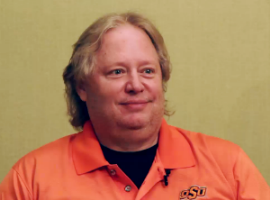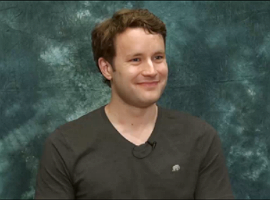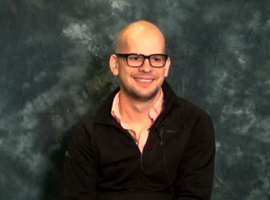InfoQ Homepage Operating Systems Content on InfoQ
-
David Riddoch on Bypassing the Kernel and Hypervisor for Network I/O, Solarflare, OpenOnload
David Riddoch explains how bypassing the OS kernel's networking stack can improve latency and throughput, networking with Solarflare and OpenOnload, hypervisor bypass, and much more.

-
Amir Chaudhry on Unikernels, MirageOS, HalVM, Rump Kernels
Amir Chaudhry explains the ideas behind Unikernels, implementations like the OCaml-based MirageOS and Haskell-based HalVM, Rump Kernels for integrating with legacy code and much more.

-
Bryan Cantrill on Containers, Linux, Triton and Illumos, Virtualization, Node.js
Bryan Cantrill explains Triton (a way to run secure Linux containers on bare metal), the history of DTrace and ZFS and their (lack of) adoption on Linux, the relevance of OS R&D, Unikernels and more.

-
Hannah Mittelstaedt on Restructuring Mobile Dev Teams
Everybody is talking about Conway’s Law these days - tear down organizational boundaries where they are not useful. Etsy did so in the space of mobile development: there are no longer dedicated mobile dev teams, but every developer is trained on mobile and every team is doing mobile development. We talk to Hannah Mittelstaedt about the benefits and drawbacks of such a transformation.

-
Anil Madhavapeddy on Unikernels and OCaml
Anil Madhavapeddy describes why unikernels have important security properties, how they can be built, and how they can be utilised alongside of Docker containers. He stresses the importance of type safe languages, particularly OCaml, which was used for the Mirage OS project, but also touches upon Go and Rust.

-
Interview with Eric Cloninger on the Eclipse Andmore Project
Recorded at EclipseCon NA 2015, Eric Cloninger talks to Alex Blewitt about the creation and current status of the Eclipse Andmore project to evolve the Android Development Tooling for Eclipse, based on the Google ADT project that was developed until 2013.

-
Jesper Richter-Reichhelm on the Game Development Process at Wooga
How do you create hits in mobile gaming? Jesper Richter-Reichhelm, Head of Engineering at Wooga, tells us about the challenges of mobile game development. How do you find the right story for a game, what technological base is the right one? And after all, what are the indications that a game might not be a hit which leads to stopping the project even right before global launch?

-
Luke Marsden on ZFS and the Docker Ecosystem
ClusterHQ founder Luke Marsden talks about ZFS, and why it's taken so long to become production ready on Linux. He then discussed how he's bringing ZFS based tools to the Docker ecosystem, and building a tech startup in the South West of England.

-
Marc Prud'hommeaux on the Swift Language
Marc Prud'hommeaux talks about his experience using Apple's Swift language, both to write new code and port an existing Objective-C code base. Also: immutable data structures, concurrency, and more.

-
Interview with Adam Ernst on functional approaches for iOS applications
Adam Ernst talks about how functional programming and immutable data structures have made Facebook’s iOS app much easier to test and debug. By decoupling the data pipeline from the UI objects, and minimising the wrk on the UI thread, the application has become easier to test and suffers less bugs than when the UI was generated procedurally.

-
Dave Arel on Hybrid Mobile Development
Dave Arel explains when to do a hybrid app vs a native app on mobile, how a hybrid app can facilitate app upgrade, how to choose JavaScript frameworks and much more.

-
Jeremy Pollack of Ancestry.com on Test-driven Development and More
Hadoop, the distributive file system and MapReduce are just a few of the topics covered in this interview recorded live at QCon San Francisco 2013. Industry-standard Agile implementation and a lot of testing, assures the development team at Ancestry.com that they have an app that can handle the large traffic demands of the popular genealogy site.
